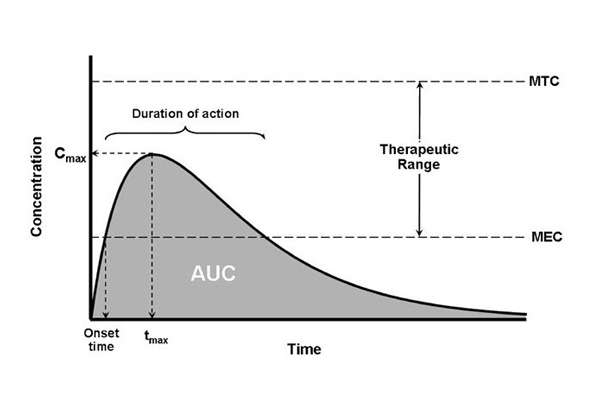Pharmacokinetics Services

What is Pharmacokinetics ?
Pharmacokinetics provides a mathematical basis to assess the time course of drugs in the body and their effects. As a key aspect of the evaluations in the early stages of the drug development process, the quantification of Absorption, Distribution, Metabolism, and Excretion processes and determination the drug concentration post-administration is vital. A fundamental understanding of these parameters is required to design an appropriate drug regimen for human. Therefore, Pharmacokinetics (PK) Studies are key activities of early drug development. PRADO has the expertise and the capacity to conduct regular and customised PK studies.
In Vitro DMPK Services
- Physicochemical Characterization
- Aqueous Solubility Studies
- Lipophilicity
- Stability
- Permeability and Absorption
- Dermal Absorption
- Parallel Artificial Membrane Permeability Assay (PAMPA)
- Caco-2 Permeability
- MDCK Permeability
- Transporter Substrate Identification
- Drug Distribution
- Plasma Protein Binding
- Blood Plasma Partitioning
- Brain Tissue Binding
In Vitro Metabolism
- Metabolite Profiling and Identification
- Metabolic Stability Assays
- Drug-Drug Interaction (DDI) Assays
In vivo Pharmacokinetics Services
- Typical animal PK studies using oral, intravenous (bolus and infusion), intraperitoneal, sub-cutaneous, intra-muscular, intra-nasal, intra-rectal or intra-ocular routes.
- Single, multiple and cassette dosing of compound(s).
- Dose Escalation Studies (dose linearity and range finding)
- Tissue Distribution Studies (brain, heart, liver, lung, kidney, eye and others.)
- Rank-ordering for compounds/formulations.
- Determination of Fundamental PK parameters (Tmax, Cmax, AUC, clearance, oral bioavailability, volume of distribution, others.)
Biological Matrices
- Blood/plasma/urine/faeces.
- Bile, Cerebrospinal fluid.
- Various tissues such as brain, lung, heart, liver, kidney, spleen, skeletal muscle.
- Ocular tissues like aqueous humor, vitreous humor, lens, cornea, optic nerve.

